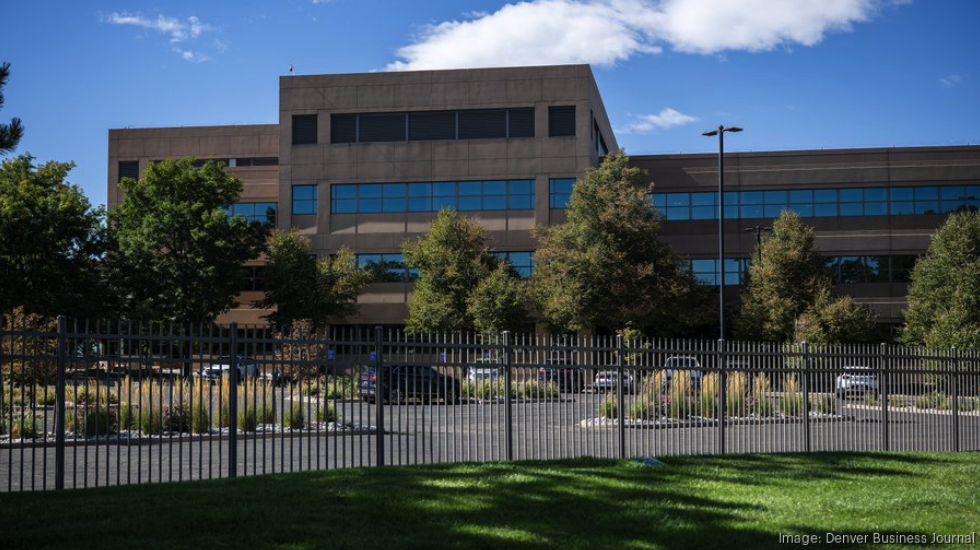
Power company eyes data center boom, seeks load charges
Tri-State CEO eye data centers amid surging electricity demand

By Jackson Guilfoil – Reporter, Denver Business Journal
Sep 22, 2025
A Westminster-based power supplier to utilities in four states sees opportunity in surging demand for electricity for data centers and artificial intelligence.
Tri-State Generation and Transmission Association Inc. late last month asked the Federal Energy Regulatory Commission to approve a high-impact load tariff that would create a process for the company to facilitate more data center development.
The tariff, which would apply to electricity loads over 45 megawatts, would require an up-front security payment from a data center company, a minimum term, a minimum monthly demand and energy charges. CEO Duane Highley said he wanted his power wholesaler to become a “go-to supplier” for data centers.
“We want to be able to build data centers as quickly as possible but not cause massive cost shifts among our members if, for example, they (data centers) come in and ask for things to be built for them and then don't stay,” Highley said.. “We don't want to build a bunch of resources, it can be hundreds of megawatts, and then have those stranded where our remaining members have to pay for them.”
Headquartered in Westminster, Tri-State is a nonprofit electricity wholesaler to co-operative utilities operating in rural areas of Colorado, Nebraska, New Mexico and Wyoming and that collectively total over 1 million customers.
Tri-State’s entire power supply totals about 2.5 gigawatts. That’s less power than what some individual large, or "hyperscale," data centers that are being proposed can consume.
Still, Highley sees opportunity to power data centers, but perhaps not as many as the data center industry’s evangelists predict will be built. To build a data center in the type of small, rural community Tri-State predominantly serves, the company would likely have to build out its electrical transmission and generation network — an investment that could turn sour if a data center operator decides to abandon the project.
“We have this opportunity to work with them to develop projects with the financial commitment on the part of the developer or the data center client, and with minimum take provisions and minimum pay provisions that protect our members in the event that they end up with facilities built that aren't useful after they leave,” Highley said.
At one point, Tri-State was fielding 4 gigawatts of data center requests, a number Highley said was “not totally sensible,” and attributed to speculation.
Beyond data centers, Tri-State is awaiting a final order on its electric resource plan — which outlines the electricity generation sources it plans to meet future demand — from the Colorado Public Utilities Commission. The order should come no later than October.
The order will let Tri-State begin awarding bids on wind, solar, battery and natural gas projects, all things that have seen inflation and general price increases for reasons including, but not limited to, a different political environment. In an interview, Highley expressed frustration at both federal regulatory uncertainty and the drawn-out process with the CPUC.
“What was supposed to be a nominal two-year process ended up taking over three, and we really lost the opportunity to lock in some really great prices that had been bid to us on wind and solar battery projects,” Highley said. “Even the gas plant that's in our ERP have all seen cost pressures upwards, and as a result of the delays because of regulatory process, our members are going to have higher electric rates going forward,” Highley said.
The wholesale electric rate from Tri-State will increase 7.5% for 2026, per a recent board of directors budget approval.
Tri-State still plans on shutting down its Craig coal plant by 2028. Highley doesn’t see Moffat County asking the Trump Administration to keep it open the way Pueblo County requested extending the life of Xcel Energy's coal-burning Comanche plants there. But Highley didn’t rule out the possibility of the Trump administration proactively ordering the Craig plant to stay open the way it has with coal plants in Michigan and Pennsylvania.
Half of Tri-State’s power will come from renewables by the end of this year, the company says. It is aiming for 70% of its electricity from renewables by the end of this decade.
Additional Info
Source : https://www.bizjournals.com/denver/news/2025/09/22/rural-power-co-op-eyeing-data-center-boom.html?cxtestId=40&cxtestVariant=cx26&cxartPos=1#cxrecss
